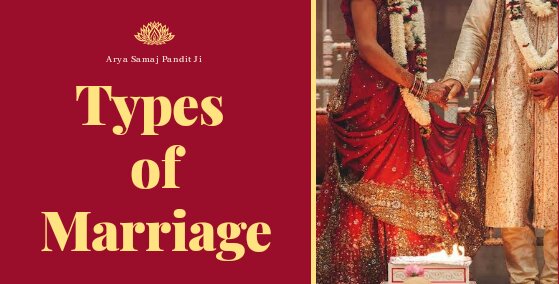
In this present age of science, however much we may make progress, there is no technology through which a person can be made a human being. But from our religious scriptures, the sages had discovered a technology that was capable of making humans human, which they addressed as Sanskar and included four ashrams of human life in it. Today’s human being is becoming educated but is becoming zero through sanskaras. But even today, we wish for a cultured child. If we are equipped with sanskaras, then a good society will be created.
Among the four ashrams of human life, the Grihastha Ashram is considered to be the most difficult because, in this ashram, the person does not take work for you but for the other. Before entering this karma field, he has to choose a friend in the form of a husband or wife on the basis of his qualities, deeds, and nature, so that he can make his household life well-being, prosperous and virtuous for all. The same process is called marriage.
There are a total of eight types of marriage in our religious scriptures, about which we have given detailed details below. Our main objective is to provide you with information, if there is any error, then inform us, we will be able to amend it and give the correct information to the people.
Vedic Philosophy Types of Marriage
Time needed: 15 minutes
8 Types of marriage details are avalable in Vedic philosophy.
- Brahma Vivah
Marriage with religious rites by choosing a decent, cultured, scholarly groom by the parents of a girl who likes each other is called Brahma Vivah.
The virtue of the nature of karma is being talked about here, it must be in each other’s behavior. Both will always be happy due to having the same quality and nature.
That is why it has been specifically said that the virtues of both the girl and the groom should be the same as the nature of karma under the Brahma Vivah. After receiving the blessings of both the parents and all the family members, they should enter into the Grihastha Ashram by performing religious marriage rituals. There is no arrangement for any type of transaction in a Brahma Vivah.
- Daiva Vivah
Donating to your girl as the value of some service work (especially religious ritual) is called ‘Daiva Vivah.

- Aarsh Vivah
Getting married by religious rites by giving money etc. to the girl’s family by the groom’s side is called ‘Aarsh Vivah’.
This means that if the girl’s side is poor, then the groom’s side supports them in marriage.
- Prajapatya Vivah
The virtue of karma is not on the basis of nature but on the basis of the consent of the bride and the girl, and marrying them religiously, is called ‘Prajapatya Vivah’.
In general, the Arrange marriage in society today belongs to this. There is a special difference between Bramha Vivah and Prajapatya Vivah. There is a provision to choose a bride on the basis of the virtue, deeds, and merit of the girl in a Bramha Vivah. That is why Brahma Vivah is considered superior to Prajapatya Vivah.
- Aasur Vivah
Buying a girl that is, giving money to parents or family members in exchange for her, and getting married is called ‘Aasur Vivah’.
Today, the marriage of a lot of men in society is not subdued due to any reason, in such a situation, the practice of getting married by giving money, etc. to the bride’s side is still prevalent today.
- Gandharva Vivah
The marriage of a bride and a girl without any custom without the consent of the parents or family is called ‘Gandharva Vivah’.
In today’s time, we can understand the love marriage within this marriage.
- Rakshasa Vivah
Kidnapping her without the consent of the girl and forcibly marrying her is called ‘Rakshasa Vivah’.

- Paisacha Vivah
A girl who is intoxicated, in deep sleep, whose mental balance is not right, taking her in solitude, taking advantage of her condition and having a physical relationship and then forcibly marrying her is called ‘Paisacha Vivah’.

